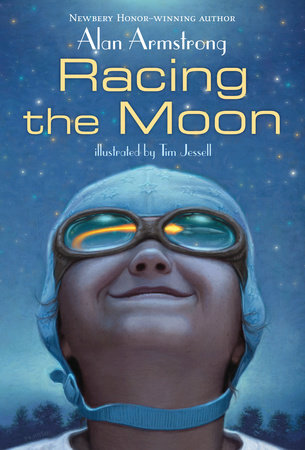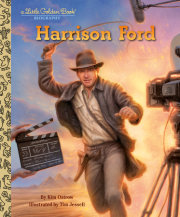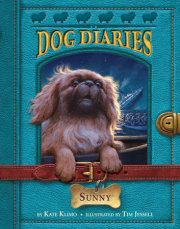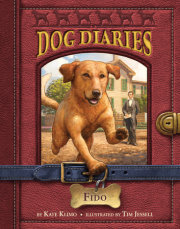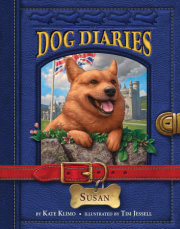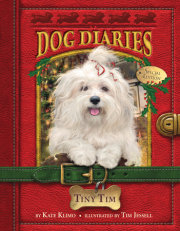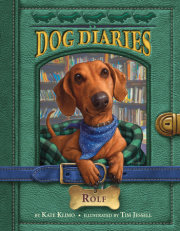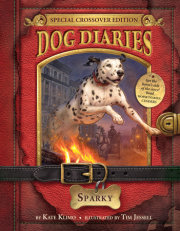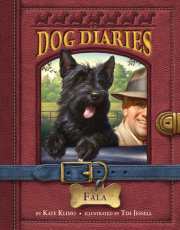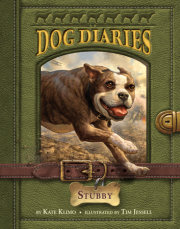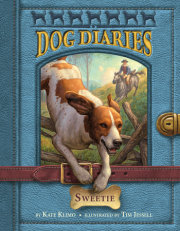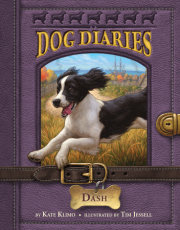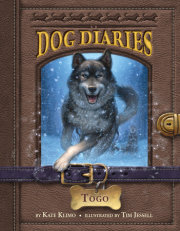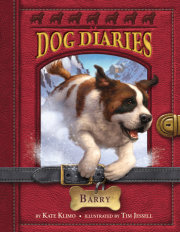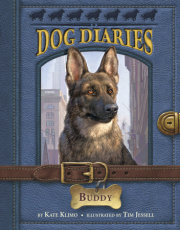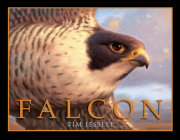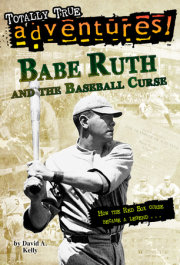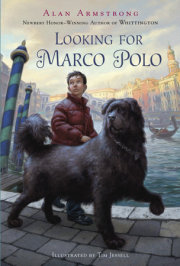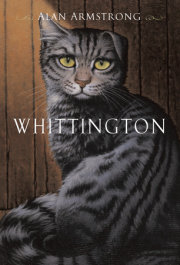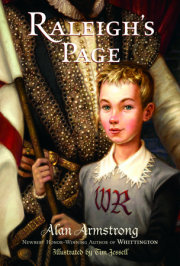1
The New Neighbor
Early Sunday morning, Alex headed up the hill. The weight she was carrying was heavy on her shoulder, but she was unaware of it. “Hi, Amelia,” she called to a blue dragonfly darting by. There were grass flowers in the warm breeze, a sweet scent that was almost dizzying. Then the sharp smell of fresh asphalt from the new road hit her with the thrill of a slap.
She stopped in front of one of the new houses. The ground around it was raw red clay. A large woman was on her knees, planting a bush. Her back was to the road.
“Hi!” the girl called as her dog’s tail began waving in expectation.
No response.
She cleared her throat to get the woman’s attention.
Nothing.
Finally Alex hollered, “Lady! Would you like to buy some plants?”
The dog barked, thinking it was some sort of game.
“Huh? What?” the woman called out, almost falling over as she jerked around, her trowel flying.
“Sorry,” Alex muttered, starting to turn away. “I’m selling plants.”
“Oh!” the woman exclaimed, her face clearing a little. “Well, hold on,” she called in a friendlier voice as she stood up slowly like you’d fold out a pocketknife.
The woman was tall and square-shouldered, in jeans and a dark red shirt. She had dark curly hair and strong-looking hands. Her face was long. She looked like she’d been out in the sun a lot.
Alex was an eleven-year-old in a not-too-clean T-shirt and dirt-stained jeans. She’d just cut her hair herself for summer. The plants she was selling were in two baskets hung on the notched broomstick she carried across a shoulder like a coolie. The large brown dog wagged happily beside her.
The woman’s face softened as she studied Alex. “Let’s see what you’ve got. I like plants, and I sure do need something around here.”
Alex figured the woman felt bad about getting angry. She pointed to her left basket. “These are azaleas, reds and whites,” she said in a professional voice. “They’re a dime each. In this other basket there’s hollyhocks and foxgloves. They’re two for a nickel. The foxgloves’ official name is digitalis. You get heart medicine from the leaves.”
The woman looked closely, then nodded. “Right! I’ll take ’em all if you’ll show me where they should go.”
“Sure,” said the girl as she lifted off her carrying pole and started emptying the baskets, delighted to have made such a big sale.
“First tell me your name,” the woman said, wiping her big hands on her jeans. “Tell me about yourself and how you got into the plants business. Tell me inside. I haven’t got my money on me. I’ve got milk, and I can give you a bomber bar I invented for the high-altitude pilots.”
“A bomber bar? What’s that?”
“Come on in; I’ll show you.”
Alex hesitated. She’d been warned about going alone into a stranger’s house, but there was something intriguing about this woman. Alex imagined herself a spy, read all the spy stories in the magazines, figured she was pretty good at telling who was dangerous. She decided to risk it.
“Can Jeep come in too?” she asked. “He won’t do anything.”
She didn’t say so, but Jeep was her protection. If she said “Sic!” he’d attack.
The woman understood. “OK.”
“Got something for him?” Alex asked.
“I reckon,” the woman said, smiling and sticking out her hand. “I’m Captain Ebbs. Call me Ebbs.” She had a nice smile.
Alex rubbed her hand clean and shook Ebbs’s. It was rough and twice as big as hers. Ebbs didn’t paint her nails like Alex’s mother did.
“I’m Alexis Hart,” she said. “I live down the hill, last house above the creek. You can call me Alex.”
Ebbs’s house was a small white clapboard box like the others in the development, but inside it looked strange. The floors were bare and it was almost empty, except tacked to the walls were photographs of fighter planes, bombers, different-sized rockets, and a big balloon with a gondola underneath. In one corner there was a dark painting.
Alex stared at the photographs, the rockets especially. They were bigger, much bigger, than the ones in her book. Ebbs was in one picture standing with some officers and a tall man in a suit. She wore a military uniform with a narrow slant hat.
Alex’s house was filled with rugs, stuffed chairs, and little tables with photographs of old people in polished silver frames.
“You waiting for the rest of your stuff?” she asked as Ebbs pointed her to one of the two kitchen chairs and plunked down a glass of milk and a plate with a grainy-looking brown bar on it.
Ebbs shook her head. “Nope, this is it,” she said, motioning around. “I move a lot because of my work, so I can’t keep much, and anyway, things slow you down. Do you bicycle?”
“Sure,” said Alex, taking a tentative bite of the bar, then putting it down. It tasted bitter.
Ebbs noticed but kept talking. “I sail a small boat. You don’t want anything extra on a sailboat either. It took me a while, but now I live like I’m sailing, everything essential and shipshape. Do you like to sail?”
“Never done it.”
“If you want, I’ll teach you.”
“Thanks,” said Alex. Then she asked in a polite voice, “Is there a Mr. Ebbs?”
Ebbs’s eyebrows went up a little. “My older brothers,” she said. “But they don’t live here. It’s just me,” she added quietly. “No family.”
“Oh.”
The dog whined.
“Right, I forgot!” Ebbs said. “Does he like cheese? I’ve got some old cheddar I can give him, but it’s pretty hard.”
“He’ll eat anything!”
As Ebbs sat down with a yellow chunk in her hand, the dog waved his big forward-curling tail. He was short-haired but his tail was bushy. He came up to Ebbs slowly, stiff-legged and formal, sniffed, then took the cheese delicately and settled down to gnaw.
“Very dignified,” Ebbs said. “What’s his name, again?”
“Jeep. He’s my brother’s dog, but he sticks with me.” Alex paused, then added, “Folks usually want to know why he’s called that.”
Ebbs waited for her to say, but she didn’t. Alex remembered her mother warning her about “going on,” talking too much.
“So tell me,” Ebbs demanded.
Alex relaxed. She liked to talk, and since Ebbs had bought her out, she didn’t have to hurry on.
“Chuck named him that because he’s the same color as his war surplus jeep,” she began. “The garbageman found him hurt by the road and left him with us. He said he was a Chesapeake Bay retriever, but he hates water and he doesn’t look like the ones in the book, so Mother says he’s a mutt. He sleeps on my bed even though he’s not supposed to. Mother says he makes my room smell like a caveman’s cave because of what he rolls in. He rolls in everything!” She didn’t tell how she pulled him close at night and buried her head in his chest, breathing in his damp warm dog scent.
Copyright © 2012 by Alan Armstrong. All rights reserved. No part of this excerpt may be reproduced or reprinted without permission in writing from the publisher.

